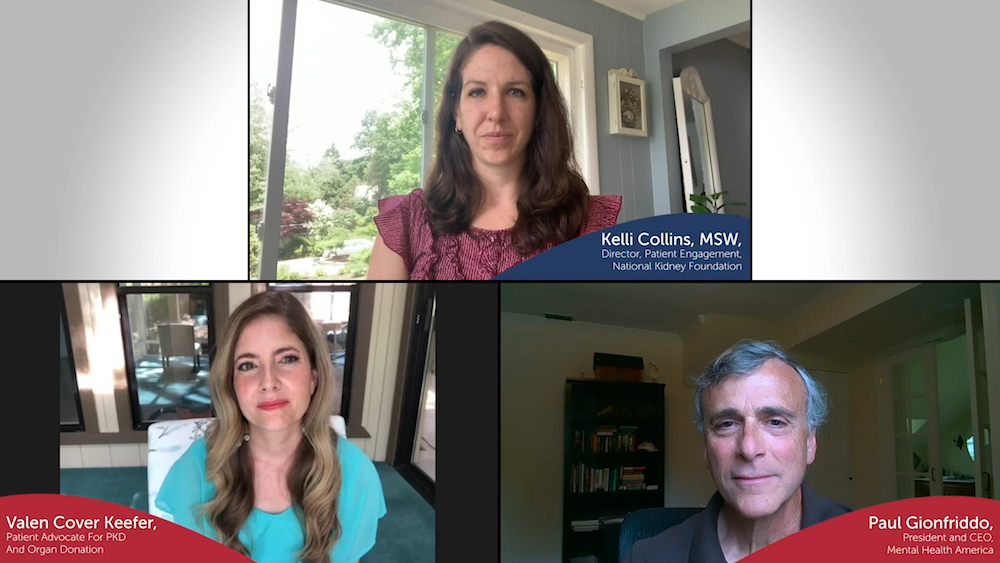
Asked about the impulse that underlines Building Mental Resiliency, a video series debuted by Otsuka in the early days of the COVID-19 pandemic, VP of patient advocacy and stakeholder management Mary Michael is quick with a response. “It’s altruism. You only get better when you take the focus off yourself, right?”
The approach appears to be resonating within the communities it serves as well as with the broader pharma world, with episodes of the series circulated over the last few months by PhRMA and BioNJ, among others. Michael frames that early success in the context of the way the series has addressed its titular topic.
“We’re leading with how we can help support people who need that support,” she explained. “It’s based on external needs. It’s not something that was dreamt up in the corporate mindset.”
Building Mental Resiliency stems from a conversation between Michael and Otsuka VP and general counsel Karen Gally about the way late-night TV hosts like Jimmy Fallon had migrated their interviews to the realm of Zoom and FaceTime during the early days of the coronavirus lockdown. “Karen was discussing that during a broader conversation about mental health struggles during the age of COVID,” Michael recalled. “We were contemplating a podcast, but I was like, ‘That’s it – video!’ We saw it as a better way to connect on a personal level.”
The series was also informed by the glut of televised press conferences by public officials, many of which acknowledged mental-health concerns only in passing. “Everybody kept saying, ‘Don’t forget to do self-care, don’t forget to pay attention to mental health.’ But that was as far as it went,” Michael continued. “That’s kind of like saying, ‘Hey everybody, lose weight.’ Somebody needs to help you do it. If you haven’t been involved in the mental-health space, you probably don’t know what resources might be available to you.”
Michael and her team, which focuses on disease support within patient communities, started out by tapping thought leaders and advocacy organizations for advice. Nearly all shared ideas and volunteered their participation; Otsuka picked up the tab for development and distribution.
The first video of the series debuted on April 14, with Michael teeing up a conversation between Texas Tech University School of Medicine clinical professor Dr. Rakesh Jain, adjunct clinical affiliate for the School of Nursing at the University of Texas at Austin Dr. Saundra Jain, Depression and Bipolar Support Alliance CEO Michael Pollack and National Alliance on Mental Illness CEO Dan Gillison. New episodes have debuted monthly since then, touching on issues around despair, vulnerability and isolation.
The discussion of isolation hasn’t been limited to individuals with mental-health disorders, however. The second Building Mental Resiliency episode focused on the huge burden falling on caregivers during the pandemic.
“Caregivers are isolated by rule,” Michael said. “It doesn’t matter if you’re talking about children, aging parents or somebody fighting a long health battle. You’ve seen lots of situations where family members can no longer be taken care of in long-term facilities due to COVID.”
The episode’s most poignant moments came during the plainspoken testimony of a man caring for two older children who have been diagnosed with serious mental illness. “When he stated the struggles he was having as an individual who was managing an isolation-within-isolation situation, we knew it was going to speak to volumes of people out there,” Michael added.
As for what comes next, Otsuka is developing a second video series “that goes deeper into some community segments that maybe we’re not as familiar with,” Michael said. Unfortunately, it’s likely that the ongoing pandemic will give rise to more material than anyone would like.
“You hear from the experts that the mental-health burden of COVID-19 could surpass the physical part of it,” Michael continued. “It’s only going to get worse… We’ll try to support as many people as possible and help build that mental resiliency.”







